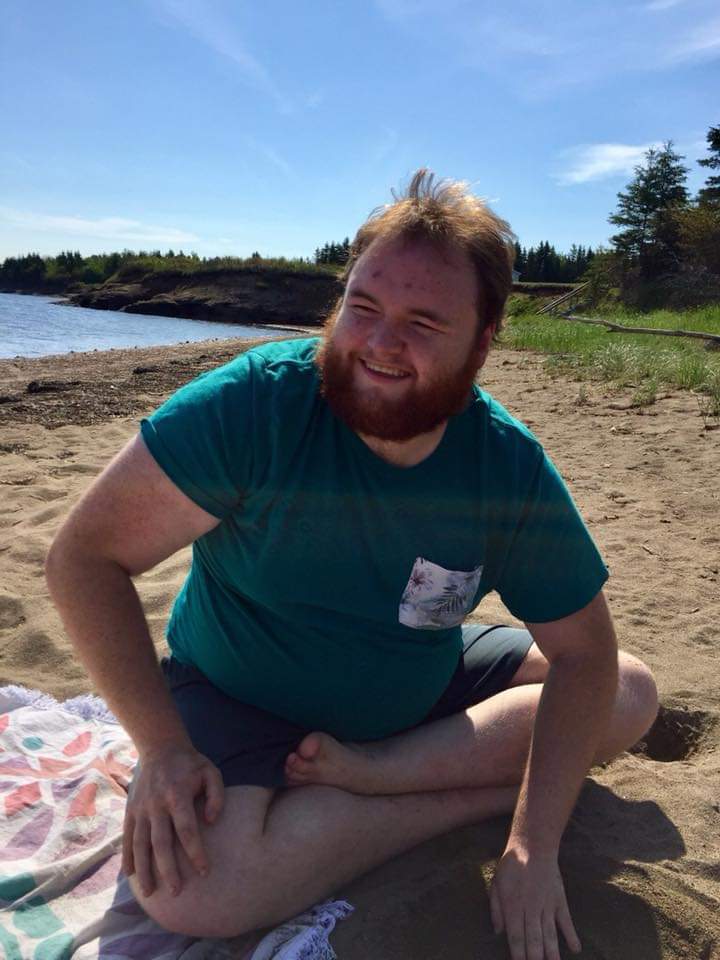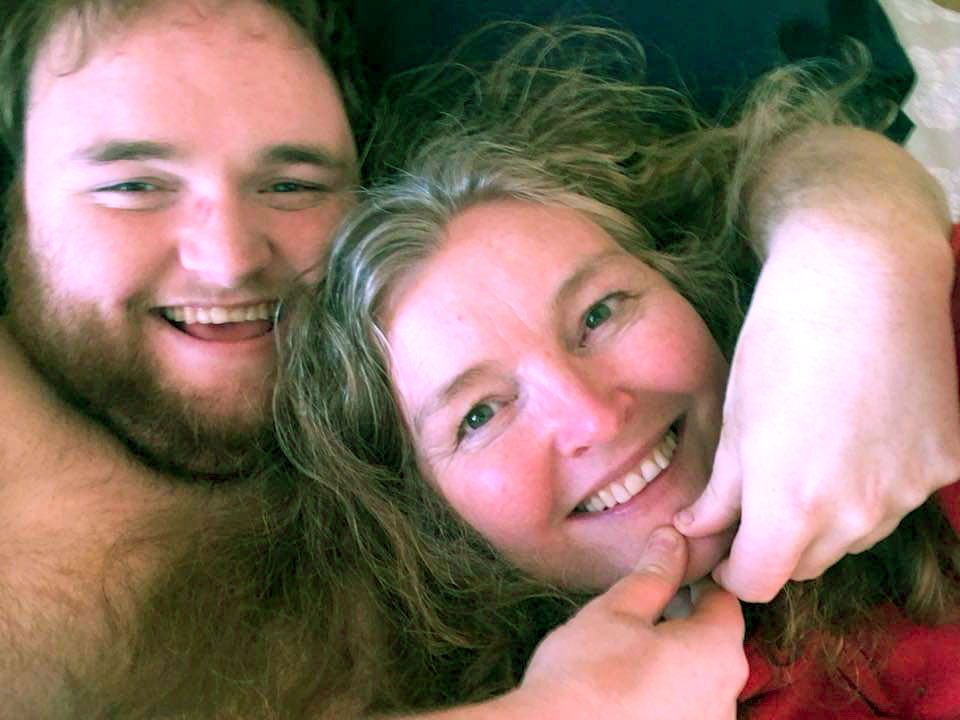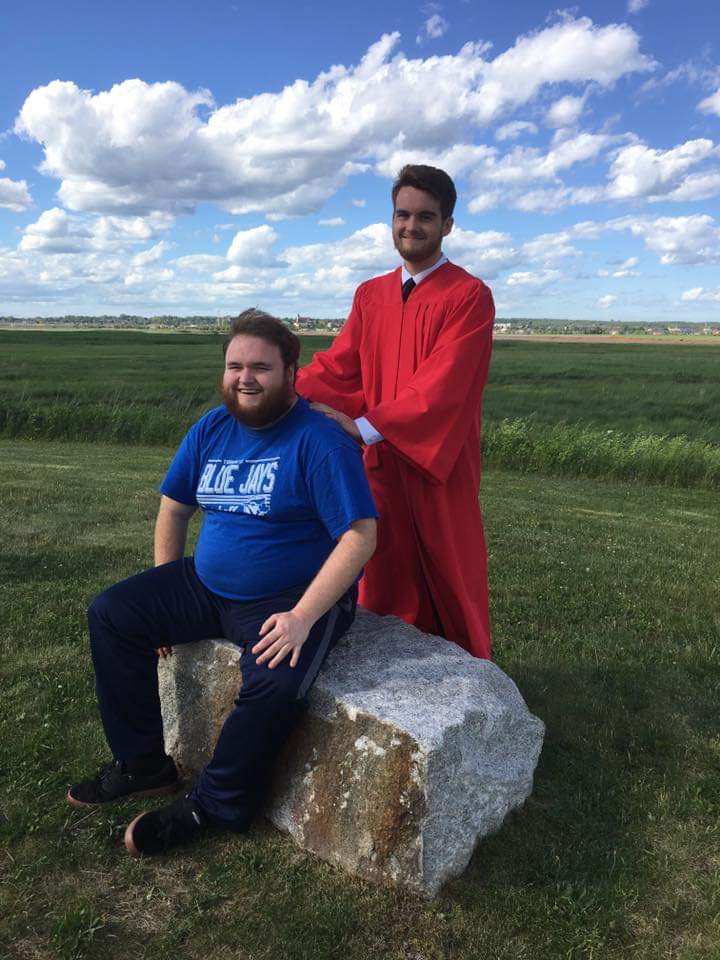For Ben Pugsley, having an autistic brother has been one of the great blessings of his life, but the way the province funds group homes is his greatest worry
“Fucking retard!”
That’s the last thing I remember before I got pulled off of him. Twelve years old, Grade 6, and I’d just gotten in my first fist fight. Now, don’t get the wrong idea about me, that I’m some hot head who starts swinging at the first sign of conflict. I hate conflict. I hate fighting. I’ve been labelled a pacifist, and to a certain extent, I can get with that – exhaust all other options before jumping to more extreme measures. So what do you do to turn a 12-year-old pacifist into a snarling flurry of fists?
You bully his brother. But here’s the plot twist. When I was in Grade 6, my brother was 19. He should have been able to take care of himself.
But he can’t. He’ll never be able to. My brother will never live on his own. He’ll never buy a house or a car. He’ll never go to college and get a job. He will never meet a girl and fall in love, never have kids. He can’t protect himself. He doesn’t know how. And that’s why it’s my job, my family’s job.
Luke was diagnosed as being on the autism spectrum when he was two years old. Until that point, he was developing as well as you could expect for a kid that age. He was smart, outgoing and had a great sense of humour. My parents couldn’t let him out of their sight or else he’d find a way to climb on top of the fridge. And he thought that was so funny. He was such a positive, upbeat kid. My parents had been blessed with the ideal toddler.

Salvation from Rainman
And then it all just stopped. He started talking less and less. He became less responsive to his name. My parents thought he was going deaf. And then he stopped talking entirely. Then he stopped smiling.
Eventually all he would do is sit under the armchair in the corner of the living room, rubbing two coins between his fingers for hours on end. It was if everything that made Luke, Luke, had slowly disintegrated into nothingness, leaving this empty shell behind.
My mom wasn’t going out without a fight though. In the early 1990s, the world didn’t know a whole lot about autism. It was a brand new diagnosis that, up until recently, had been thrown under the blanket diagnosis that basically boiled down to “stupid.” But if there was anything she could do to help her little boy, she was up to the challenge. And boy, was she clever about the way she went about it. Know the movie Rainman? It’s about a rich, old corporate fart kicking the bucket and leaving his fortune to only one son. But that’s not the important part. One of the main characters is autistic.

So she rented the movie and skipped to the credits. She found the researchers credited with figuring out how to portray autism and sent them a letter. They got back to her a few months later with a giant package of resources.
Today, Luke is a six-foot-two, bearded lumberjack-looking teddy bear. The man is a hippie now, all about peace, love and positivity. He loves the beach especially. He’s spent hours on the beach, meditating and running fingers through the sand, with absolutely nothing else to distract him. He’s a person just like us.
He wasn’t an empty shell; he just had a thick one that took a little more work and love to get him out of. He’s non-verbal, but that doesn’t mean he’s not telling you something. He can’t tell you if he’s happy or sad, but he can show it. He feels emotions just like us: emotions of happiness, curiosity, humour, love and pure freedom. Still, I don’t want the first part of my commentary to give you the wrong idea. Yes, Luke’s diagnosis has been a massive challenge: a challenge we work with every day of our lives. But Luke himself has been the biggest blessing I could have ever asked for.
Luke loves unconditionally. He feels love as strong and as innocent as a child before heartbreak, before you learn there are really bad people in the world. My brother, who happens to be autistic, is human.

Outrageously underfunded, understaffed
I protect him. Back in sixth grade, it meant launching myself at the kid who was bullying him. Today it means making sure that all of the work we put into understanding Luke, into working with him to help build the life that makes him happy, doesn’t go to waste. Like it or not, my parents won’t be able to take care of him forever. Eventually, he will have to go to a special care home.
But right now the special care homes just don’t cut it. They’re outrageously underfunded and understaffed. In the best group homes, a typical day is sitting around the house watching TV, maybe getting to go out on a walk to the park and back if sufficient staff members are available that day. Eating the same meals week after week, month after month. Every few months they might get to do something massive, like go go-karting. That’s like a week-long Caribbean vacation to them. More often than not, the staff won’t even get reimbursed by the home because staff members know how little money they have. But they can’t do it that often because they’re only paid slightly above minimum wage.
And that’s in the best group homes. I’ve seen some awful, terrible things that people think only exist in movies. I’ve seen a young man with such a difficult and complex diagnosis that the staff aren’t even remotely well trained enough to care for him. They chained him to his bedpost and brought him three meals a day.
We’re way off track. At some point, when the concept of the special care home formed, we made a promise that we would do everything we could to keep people like Luke alive. Because that’s what humans do.
And at some point, we decided that these people are different than we are, but that’s OK: they’re our people, and if they can’t protect themselves, we will.
But if we’re going to do that, we can’t only go part way. Yes, we’ve kept them alive. They eat, sleep and breathe. But they don’t get the opportunity to live.
Do you know what a life that you don’t get to live is? A life where all you do it watch the same boring daytime TV day after day, locked inside the same four walls, never getting to leave? It’s hell. I’ve been in there, I’ve seen it.
So why don’t we actually own up on our promise. Let’s not just help them survive; let’s help them live.

